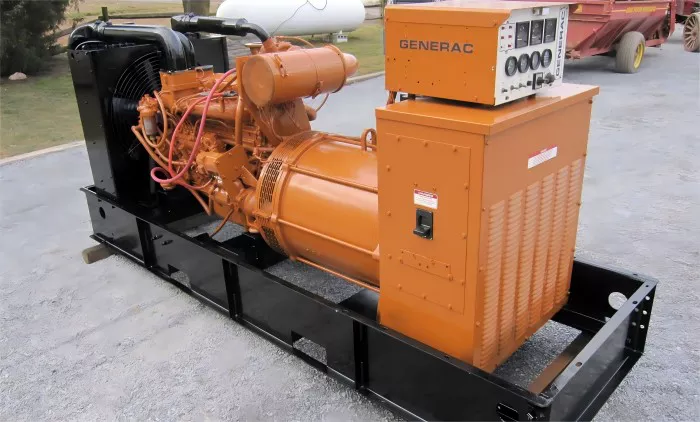Understanding the fuel consumption of a diesel generator is essential for anyone who relies on these machines for backup power, primary energy in off-grid situations, or even for industrial applications. This article provides a detailed analysis of how much diesel is required to run a generator, including factors that influence fuel consumption, tips for efficient fuel usage, and practical considerations for various types of generators.
1. Factors Influencing Diesel Consumption
1.1 Generator Size and Power Output
The size of the generator and its power output significantly affect diesel consumption. Larger generators with higher power outputs will naturally consume more fuel than smaller, less powerful units.
1.2 Load Demand
The amount of power being drawn from the generator directly impacts fuel consumption. A generator running at full capacity will use more diesel than one running at a partial load.
1.3 Engine Efficiency
Different generators have varying levels of engine efficiency. More efficient engines can produce the same amount of power using less fuel, which can result in lower overall diesel consumption.
1.4 Maintenance and Condition
Well-maintained generators operate more efficiently and consume less fuel. Regular maintenance, such as oil changes and air filter replacements, can keep the generator running smoothly and efficiently.
1.5 Operating Conditions
Environmental factors such as temperature, altitude, and humidity can affect a generator’s fuel consumption. For example, generators may use more fuel in extreme temperatures or at higher altitudes due to changes in air density and engine performance.
2. Calculating Diesel Fuel Consumption
2.1 Standard Calculation Methods
To estimate the amount of diesel required to run a generator, you can use standard calculation methods based on the generator’s power rating and efficiency.
2.2 Formula for Fuel Consumption
A common formula used to calculate fuel consumption is: Fuel Consumption (L/hr)=Power Output (kW)×Fuel Consumption Rate (L/kWh)Generator Efficiency\text{Fuel Consumption (L/hr)} = \frac{\text{Power Output (kW)} \times \text{Fuel Consumption Rate (L/kWh)}}{\text{Generator Efficiency}}Fuel Consumption (L/hr)=Generator EfficiencyPower Output (kW)×Fuel Consumption Rate (L/kWh)
2.3 Example Calculation
Consider a 10 kW generator with a fuel consumption rate of 0.25 L/kWh and an efficiency of 90%. The fuel consumption can be calculated as: Fuel Consumption=10×0.250.9≈2.78 L/hr\text{Fuel Consumption} = \frac{10 \times 0.25}{0.9} \approx 2.78 \text{ L/hr}Fuel Consumption=0.910×0.25≈2.78 L/hr
2.4 Real-World Variations
Actual fuel consumption can vary based on real-world operating conditions. It’s essential to monitor the generator’s performance and adjust calculations as needed to get a more accurate estimate.
3. Fuel Consumption of Different Generator Types
3.1 Portable Generators
Portable diesel generators are typically used for smaller applications and have lower fuel consumption rates. They are ideal for short-term power needs and can be easily transported.
3.2 Standby Generators
Standby generators are designed for emergency backup power in homes and businesses. They have moderate fuel consumption rates and are usually more efficient than portable models.
3.3 Industrial Generators
Industrial diesel generators are used for large-scale applications and continuous power supply. These generators have higher fuel consumption rates due to their size and power output, but they are also designed to operate more efficiently over long periods.
3.4 Marine Generators
Marine diesel generators are used on boats and ships, where reliable power is crucial. These generators are designed to withstand harsh marine conditions and have specific fuel consumption rates based on their unique operating environment.
4. Tips for Efficient Fuel Usage
4.1 Regular Maintenance
Maintaining the generator regularly ensures it operates efficiently and consumes less fuel. This includes changing the oil, replacing air filters, and checking the fuel system for leaks.
4.2 Load Management
Managing the load on the generator can significantly impact fuel consumption. Running the generator at a consistent, optimal load rather than fluctuating demands can improve efficiency.
4.3 High-Quality Fuel
Using high-quality diesel fuel can enhance the performance of the generator and reduce fuel consumption. Contaminated or poor-quality fuel can cause the generator to work harder, using more diesel.
4.4 Upgrading Components
Upgrading certain components, such as the alternator or fuel injectors, can improve the generator’s efficiency and reduce fuel consumption.
4.5 Monitoring Systems
Installing fuel monitoring systems can help track fuel usage and identify areas where consumption can be reduced. These systems provide real-time data and insights into the generator’s performance.
see also: 5 Best Standby Diesel Generator for Home Use
5. Practical Considerations for Diesel Generators
5.1 Fuel Storage
Proper storage of diesel fuel is essential for safety and efficiency. Diesel should be stored in approved containers in a cool, dry place to prevent degradation and contamination.
5.2 Safety Precautions
Safety is paramount when handling and storing diesel fuel. This includes following proper refueling procedures, using appropriate safety gear, and adhering to local regulations and guidelines.
5.3 Environmental Impact
Consider the environmental impact of using diesel generators. While they are efficient and reliable, they also produce emissions. Exploring cleaner alternatives or hybrid systems can mitigate environmental concerns.
5.4 Cost Analysis
Conducting a cost analysis can help determine the overall expense of running a diesel generator, including fuel costs, maintenance, and potential upgrades. This analysis can guide decisions on whether a diesel generator is the best option for your needs.
5.5 Legal and Regulatory Considerations
Be aware of legal and regulatory requirements for using diesel generators in your area. This includes emissions standards, noise regulations, and safety codes that must be adhered to.
Conclusion
Understanding how much diesel is needed to run a generator involves considering various factors, including the generator’s size, load demand, engine efficiency, and operating conditions. By calculating fuel consumption accurately and following best practices for efficient fuel usage, you can ensure that your diesel generator operates effectively and economically. Regular maintenance, quality fuel, and proper storage are key to maximizing the efficiency and lifespan of your generator. With these insights, you can make informed decisions about using diesel generators for your home, business, or other applications, balancing reliability, cost, and environmental impact.
Related topics:

